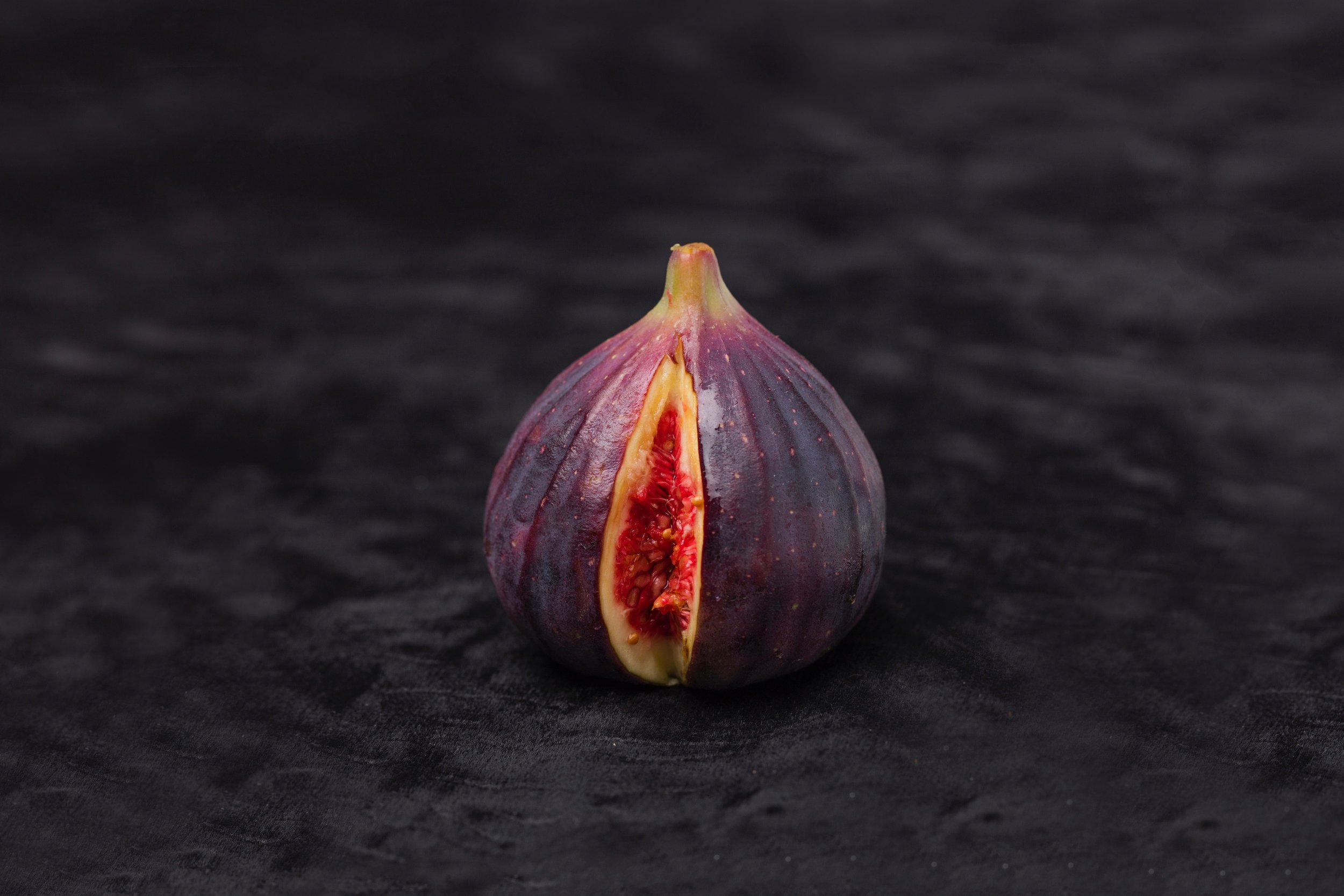Can Perimenopause Kickstart a Sexual Awakening?
Photography by Deon Black
Story by Natasha Marie
“When I was perimenopausal, sex and sexual wellness were constantly on my mind.”
Editor’s note: Welcome to our special four-part series that gets to the root of perimenopausal pain: our pelvic floor. While it is written from a cis-gender perspective, we want to make it clear that perimenopause can also affect trans men and non-binary people and we are actively working towards being more inclusive in our language and storytelling.
As humans with uteruses, we have few biological imperatives: sex and perimenopause are among them. Two incredibly divisive topics. Lucky for us, we get to navigate both - simultaneously!
Among the many changes heralded in by perimenopause, sexual wellness is one of them. During perimenopausal, a woman’s body undergoes hormonal changes that might affect her sexual well-being.
Because women’s sexual health is riddled with stigma and misconceptions, mining for reliable information from all the misinformation out there can feel overwhelming. For a long time the narratives around sexual health and pleasure have felt caricaturesque and, frankly, unreliable.
When I have questions about sex, I call Sherry Tran, also known as Empress Lotus. As a sexual wellness expert, consultant, and advocate for sexual wellness brands and companies, she’s a wealth of information.
Culturally, we are force-fed the story that perimenopausal women lose interest in sex altogether. But Sherry Tran - Empress Lotus tells a different story, “When I was perimenopausal, sex and sexual wellness were constantly on my mind.”
Perimenopause isn’t the end of sensuality. In fact, it can feel like a new beginning, an awakening for some. That’s something no one told me about! However, it doesn’t come without complications. Sherry Tran - Empress Lotus explains her experience, “My sex drive went up, and my sexual dissatisfaction went up. I watched more porn, dated more, masturbated more, bought more sexy clothes, embraced my seductive side more, and explored more ways of self-pleasure. But it seemed like nothing satisfied my need.”
The truth is this: narratives around perimenopause are much more nuanced than we were led to believe. So we turn to who we’ve always turned to when in doubt - each other. I spoke with Sherry Tran - Empress Lotus, who is focused on trauma-informed DEI consulting, about her experience to see what we need to know about this phase in our lives.
“Give yourself 100% freedom to explore what is pleasurable for you.”
Sherry’s story
What are some misconceptions and stigmas about perimenopause and sexual health?
The lack of interest in sexual activity, that somehow the aging process makes people not want to pursue pleasure or talk about sex. It’s the opposite. With the freedom of not worrying about getting pregnant, some folx liberate their sexual desires and experiment more with age. There is also a lack of representation in the media of the aging generations enjoying sexual desires. When you do see it on the big screen, it’s usually cut off or used for comic relief.
We are not inclusive of sexual health with our aging community. This lack of representation tells us only the young and able can enjoy a healthy sexual lifestyle. This can lead to miseducation towards the aging community and, for example, put them at increased risk of getting an STI for not practicing safer sex.
Absolutely! Sex education suffers from stigma and lack of inclusivity, but it’s not only the curriculum that suffers; it’s also demographics. How did perimenopause affect your sexual health?
My sex drive went up, and my sexual dissatisfaction went up. Both went up due to the hormonal shift from my hysterectomy. It was the hysterectomy that threw me into perimenopause. Medical professionals tend to leave that side effect out when discussing hysterectomies. Though the procedure was medically necessary, I wish I’d have had that information beforehand so I could’ve planned better instead of thinking I was forever broken.
“My drive and dissatisfaction both going up were due to the hormonal shift... Medical professionals tend to leave that side effect out when discussing hysterectomies.”
What have you noticed since entering perimenopause? What’s been most surprising?
It’s difficult to maintain a comfortable body temperature. I noticed my core temperature raised, and it was easy for me to get hot. My feet easily swell and heat up. I gained 15 pounds. My weight fluctuates from 5-15 pounds every day. My hair has thinned; it’s not vibrant anymore. I’m not the sharpest tool in the shed anymore, but I’m more patient with my emotions and comfortable sitting in those emotions alone. I don’t have to plan a trip around my menstrual cycle and worry about ruining my clothes with menses. I started to follow my daughter’s hormonal cycle, and I feel what she feels, and I crave what she craves.
Can you elaborate on your experience with a hysterectomy and pelvic pain?
I suffered daily labor pains and pelvic pain for two years. I bled for almost two years and dropped to 80 lbs due to the pain. I went through all the tests: MS, Lyme, and all the female reproductive diseases, but it turns out I have a connective tissue disease. My connective tissues can’t repair. So, I had a medically necessary hysterectomy. Thankfully, I am much healthier now. Part of my healing is bringing the importance of sexual health into my life. Sex and pleasure are human nature. Our health will directly impact our sexual and pleasure wellness.
Thank you for sharing that. What did this experience with pain teach you about sexual health? Were you able to find anything or any routine that gave you sexual gratification?
It’s an ongoing learning process. This experience gave me more permission to explore other ways of finding pleasure. What I discovered is needing more passion for myself and enjoying moments when someone expresses passion towards me. Giving my mind, which is where pleasure lives, freedom to express what I want and guide others on pleasing me. It helped me become the shame disruptor and pleasure advocate that I am today. We aren’t broken, just not discovered or found.
“This experience gave me more permission to explore other ways of finding pleasure. It helped me become the shame disruptor and pleasure advocate that I am today. ”
What would you recommend to women struggling with pain during sex?
There are many options for making a plan to explore pleasure while experiencing pain during sex. First, I highly recommend seeking a medical professional to discuss any underlying issues or concerns you may be experiencing. There are several ways to experience sexual pleasure. One component is to give yourself 100% freedom to explore what is pleasurable for you. Exploration on what is your pleasure language. Learn what ways your body interprets pleasure and take advantage of using your senses during exploration. Recognize that your body and brain are different and how you experience pleasure will be different from others and from what we see on the big screen.
Another focus is to move away from penis to vagina thoughts of sex. There are many ways to experience pleasure through outercourse. Outercourse also allows time to create a welcoming atmosphere for intercourse if that is what you are seeking. Exploring the vulva and different ways to stimulate the vulva is a great way to add more pleasurable sensations to your experience. And let’s not forget the perineum area, aka the taint. Some folks find great enjoyment of stimulation of the anal region. The female erectile tissues aren’t always in the same spot; they vary from person to person. Play around with different erogenous zones. Sometimes we need a combination of simultaneous stimulation to feel pleasure.
Examining your yes, no, and maybes can be a fun way to explore your boundaries. And may open conversations of mental or emotional barriers that can block the enjoyment of pleasure.
read +
It’s time to kill the Kegel hype
We've been told Kegels are the key to having a more enjoyable sex life. But is that true? Clinician, writer, educator, and owner of Pelvic Wellness & Physical Therapy, Dr. Rachel Gelman debunks the hype. She also shares more about pelvic health. It covers far more than sex. [con’t…]
You mentioned earlier that our overall health impacts our sexual health and pleasure. Are there exercises, practices you recommend for women to take care of their sexual health?
Dance and exercise are beneficial to our mental, emotional, and physical wellness. Find movements to allow freedom of movement in different planes for the hips and pelvic region. Take caution on over-exercising with Kegels. Focus on learning how to relax our pelvic floor muscles is just as important as contracting them. There are also pelvic health specialists out there who can be a great resource, too.
“Part of my healing is bringing the importance of sexual health into my life. Sex and pleasure are human nature.”
Sherry Tran - Empress Lotus touches on the balance between the mind and body. Recent research has revealed that sexual pleasure isn’t a which came first chicken-or-egg quandary anymore; the mind and body are connected and reactive to one another. The mind-body connection is powerful.
While we have control of our internal narratives, we also need external changes to balance sexual wellness. Knowing the intimate details of our own bodies help us understand our experience and manage our expectations so we don’t feel forever broken, as Sherry Tran - Empress Lotus did.
But good education, one that’s not shy about giving it to us straight, can have a huge impact on how well we get through this normal stage of life. So I’m on a mission to find out what we need to know.
“There have since been scientific improvements that have shown that for women who start hormone therapy around the time of menopause, the benefits far outweigh the risk. The caveat being it benefits women who don’t have a personal history of high-risk breast cancer.”
I reached out to a fellow educator, urologist, and female sexual health specialist, Dr. Jessica Yih, Assistant Professor of Urology at Ohio State University to help give context to our bodies’ sexual functions during perimenopause.
Is pelvic pain and pain during sex universal for all women experiencing perimenopause?
People experience perimenopause differently. Everyone’s genetics, diet, lifestyle, physical activity, emotions, and stress are different. There is no “normal.” Pelvic pain and pain with vaginal penetration can be common because the vaginal tissue is sensitive to estrogen and testosterone deficiencies caused by perimenopause. Hormone deficiency can cause a lack of lubrication and atrophy of tissue, which can lead to tearing or ulcerations, even from normal daily activities like walking or exercising, and vaginal penetration can make this even worse.
Painful sex is an experience many perimenopausal women face, is that penetrative sex only?
No. During non-penetrative sex, the vestibular tissue, the area right inside the labia minor, is often stimulated, which can also lead to pain. The urethra is also in this area. You can have urinary symptoms – burning, pain, frequency, urgency – independent of or worsened by stimulation of the area, so no, not just penetrative sex.
So, what are some solutions that can help or alleviate pain during sex?
Since hormone deficiency can cause a lack of lubrication, I tell my patients about vaginal moisturizers like Replens. However, if I had a patient who was experiencing severe pain, I would recommend hormone therapy. Sometimes there’s only so much a healthy lifestyle, and exercise can help.
Hormone therapy sounds daunting! Can you talk a little more about the risks/advantages?
Hormone therapy has gotten a bad reputation over the years – the worst of it being a press conference based on the WHI study (Women’s Health Initiative), which used conjugated equine estrogen – estrogen from horses – that reported increased risks of several different conditions.
However, a lot of bad science happened here. There have since been scientific improvements that have shown that for women who start hormone therapy around the time of menopause, the benefits far outweigh the risk – including benefits to decrease overall mortality, fractures, cancers, diabetes, heart attacks. The caveat being it benefits women who don’t have a personal history of high-risk breast cancer.
Additionally, we now use bioidentical estrogens instead of equine estrogens and monitor blood levels to ensure treatment is working. There are different ways to get bioidentical estrogens into your body. My preferred method is the vaginal ring followed by a patch or gel. The ring only needs to be changed every three months so it can be very convenient!
For women who struggle with the stigma of perimenopausal pain, are there any words of wisdom?
Talk about it. It’s normal.
Natasha Marie is a writer making technology less nebulous and sexual health more accessible by dismantling taboos one word at a time. She’s currently a staff writer for sexual technology company, MysteryVibe, and manages media and public relations for global sextech conference, Sx Tech Eu. photo: Alex Oley









